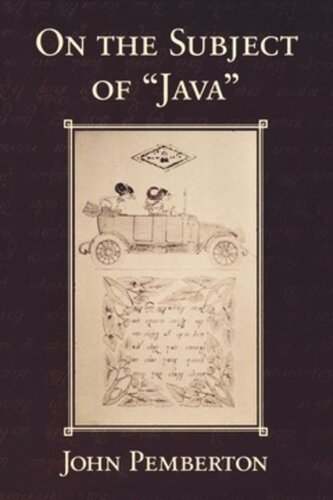

Most ebook files are in PDF format, so you can easily read them using various software such as Foxit Reader or directly on the Google Chrome browser.
Some ebook files are released by publishers in other formats such as .awz, .mobi, .epub, .fb2, etc. You may need to install specific software to read these formats on mobile/PC, such as Calibre.
Please read the tutorial at this link: https://ebookbell.com/faq
We offer FREE conversion to the popular formats you request; however, this may take some time. Therefore, right after payment, please email us, and we will try to provide the service as quickly as possible.
For some exceptional file formats or broken links (if any), please refrain from opening any disputes. Instead, email us first, and we will try to assist within a maximum of 6 hours.
EbookBell Team

4.8
104 reviewsWhat are the limits of cultural critique? What are the horizons? What are the political implications? John Pemberton explores these questions in this far-reaching ethnographic and historical interpretation of cultural discourse in Indonesia since 1965. Pemberton considers in particular how the appearance of order under Soeharto's repressive New Order regime is an effect of an enigmatic politics founded upon routine appeals to cultural values.
Through a richly textured ethnographic account of events ranging from national elections to weddings, Pemberton simultaneously elucidates and disturbs the contours of the New Order cultural imaginary. He pursues the fugitive signs of circumstances that might resist the powers of New Order rule through unexpected village practices, among graveyard spirits, and within ascetic refuges.
Key to this study is a reexamination of the historical conditions under which a discourse of culture emerges. Providing a close reading of a number of Central Javanese manuscripts from the late eighteenth century on, Pemberton outlines the conditions of knowledge formation in Indonesia since the beginning of Dutch colonial control. As he overturns common assumptions concerning colonial encounters, he discloses the gradual emergence in these texts of a discursive figure inscribed in contrast to the increasingly invasive presence of the Dutch: a figuration of difference that came to be called "Java."